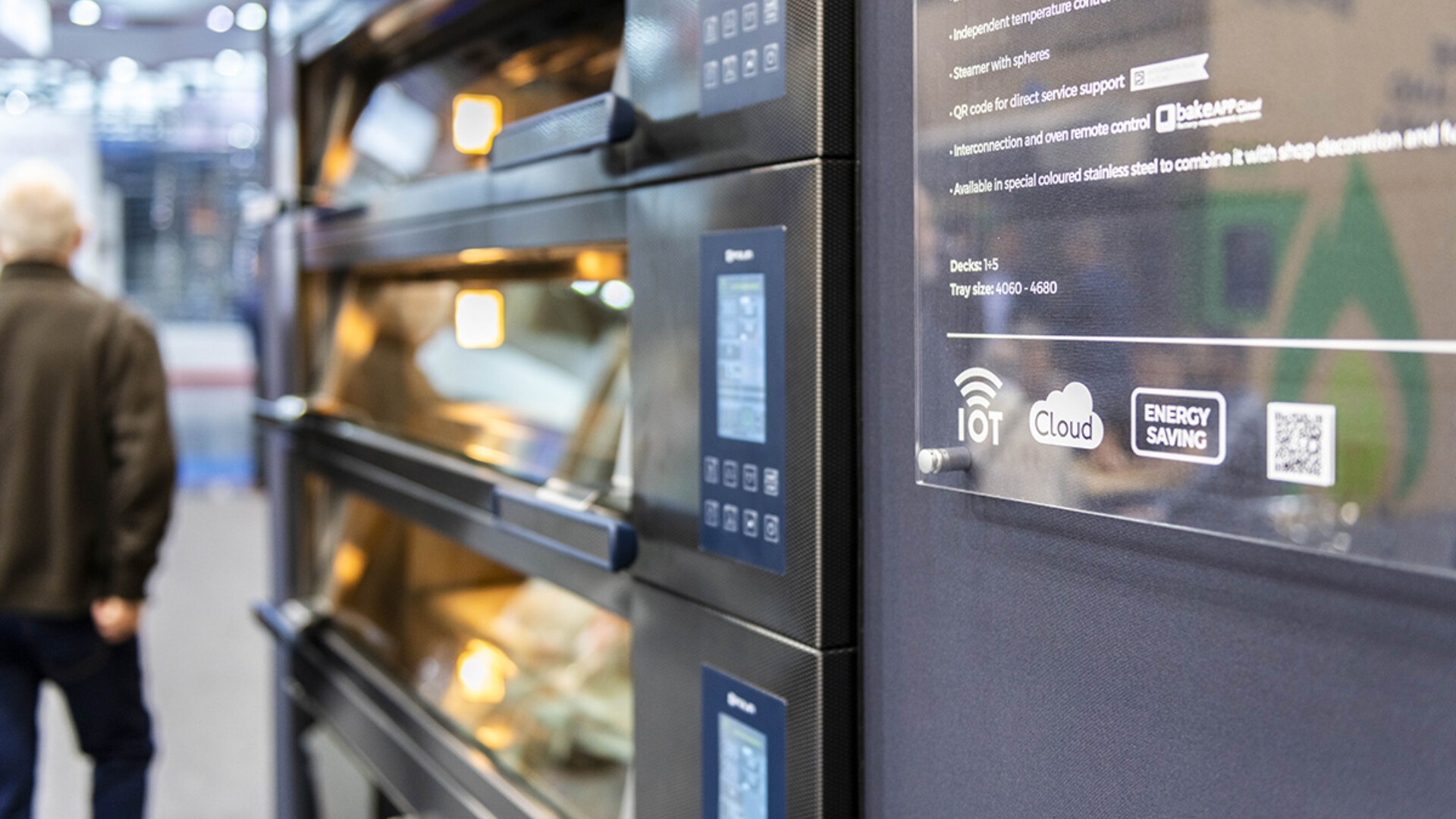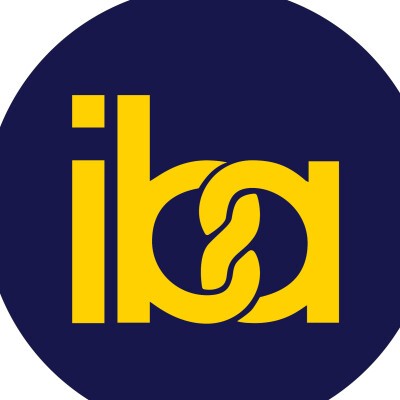AI in production and sales: more revenue, more sustainability
AI solutions help to increase sales, reduce staff workload and protect the environment. Orders can be placed easily and fresh variety is guaranteed. And more precise production planning leads to reduced costs.
"Every third food product in Germany is thrown away - 1.7 million tonnes of which are baked goods," says Dr Tobias Pfaff, Managing Director of Foodtracks in Münster, quoting the results of a WWF study. Increasing customer demands for variety and availability as well as constantly changing requirements can lead to high return rates for bakers. What cannot be donated, processed into breadcrumbs or animal feed or utilised for biogas ends up in the bin - and causes greenhouse gases. Companies such as Foodtracks, Foodforecast and BäckerAI want to change this. They support the traditional bakery trade with artificial intelligence (AI). Their solutions reduce returns, boost sales and generate more time for employees to focus on baking bread and sales.
AI recognises patterns in unstructured data
After initial discussions with the management and, ideally, someone from the sales department, as well as getting to know each other, the AI software programmes can be connected directly to the goods and checkout systems. During the onboarding phase, the programme is tailored to the respective company. Employees are trained. "The use of AI is worthwhile for five or more shops," says Pfaff. Once the software is activated, it can take orders from day one.
"We are running a free pilot phase of one to two months. The difference with and without AI will be clearly visible in live tests with forecasts," says Justus Lauten from Foodforecast in Cologne. A major customer of the start-up is the Ruch bakery with 80 branches between Kassel and Hildesheim. "We are already working successfully with Foodforecast in our own shops," says Jan Philipp Gresens, one of Ruch's three managing directors. "It was therefore clear to us that we would also work together to automate and optimise the process of supplying the 53 Aldi stores."
"Once the system has been established and supplied with data, one person can basically place an order for 100 shops with a single click," says Franz Seubert from BäckerAI in Großrinderfeld. The AI recognises patterns in unstructured data, taking into account school holidays, public holidays, weather, promotions, product range distribution as well as the holiday of another baker in the town or the date of a street festival.
In addition, the automated ordering process could relieve bakeries of staff shortages and the lack of experienced employees. Especially as you can't always rely on human judgement. The AI has no personal preferences. "It also never gets sick and doesn't go on holiday," adds Seubert.
Returns are not only bad for the climate, but also for the cash register - especially when it comes to Black Forest gateaux or schnitzel rolls. An automated ordering process not only saves time, but also increases returns.
Bäckerei Schäfer, which has 150 branches and numerous retail outlets, works with BäckerAI to optimise sales and returns.
Fewer returns and early sales
Early sell-outs hurt differently - sales remain in the subjunctive. AI can provide reliable support in always having a fresh, varied offer. "It also notices when an order of 30 baguettes is posted to the regular daily turnover and points out on the next order that this could be an outlier and asks whether this is actually the case," says Foodtrack's Managing Director Pfaff.
Over 60 bakeries work with the data science company - including the Härdtner bakery in Neckarsulm with its 60 branches since 2019. It has two modules: Branch Radar and Order Tuning. "Filial Radar is used by employees who have never worked with KPIs before - even those who have been with the company for 30 years. Even the sales manager, who will soon be retiring, has overcome her fear of figures with the tool," says Managing Director Nicolas Härdtner.
And if you want, the AI can also create intelligent daily plans and use the app to signal every one or two hours which dough blanks still need to be baked. After all, the weather and temperatures play a major role: if it's hot, sales drop. If the sun is shining at 20 degrees, people buy sandwiches or pastries and sit outside.
Algen: Der Superfood-Rohstoff
Eine Innovation in der Zutatenliste einiger Bäckereien sind Algen. Ob im Brot, in Muffins oder in Krapfen - die alternative Zutat wird zunehmend beliebter, da sie zahlreiche Vorteile bietet. Einer der wichtigsten Vorzüge des Food Trends ist der hohe Nährwert. Algen sind reich an Proteinen, Ballaststoffen und Mineralstoffen. Sie enthalten auch Omega-3-Fettsäuren, die wichtig für die Gesundheit des Herzens und des Gehirns sind. Ein weiterer Pluspunkt bei der Verwendung des Superfoods als alternative Zutat ist die Nachhaltigkeit. Algen wachsen schnell, benötigen keine Düngemittel oder Pestizide und in der Regel weniger Wasser und Fläche als andere Zutaten und Rohstoffe. Die Verwendung von Algen als alternative Zutat kann somit dazu beitragen, die Umweltbelastung zu reduzieren.
Avoidable problems in production
Networked software also helps to reduce costs and make sensible use of personnel in production. Production can be significantly optimised using digitalisation and AI. It can help to reduce reject rates, utilise machines more efficiently and counteract the loss of expertise due to staff turnover.
If production data is combined with predictive quality or predictive maintenance solutions, the causes of quality problems can not only be identified at an early stage. They can even be predicted and thus prevented. "Our maintenance tool predicts what maintenance is needed and when, how long it will take and what manpower is required," says Thorsten Iborg from DIOSNA in Osnabrück. This means that processes are not interrupted unnecessarily and unexpectedly. "If difficulties do arise, our technicians can also join in via remote maintenance during operation."
In a digitalised bakery, it is possible to control the systems distributed across an area from a central location thanks to appropriate software programs. A calendar function can be used to precisely plan the daily routine with auto-start, blocking times or cleaning. Baking chambers and baking processes can be monitored individually on the dashboard, and individual recipes or data sets for products and baking programmes can be called up. "Incorrect doses can be identified and thus reduced," says Iborg. The quality always remains the same, even if the skilled dough maker is absent due to illness.
Assistance system reduces errors
Croissants rarely tolerate the bread programme. "Over 50 per cent of baking processes are affected by user errors despite user-friendly controls," says DEBAG in Bautzen. User errors can be avoided with the help of the Oven Station Assistant, which was developed in collaboration with PreciTaste, a technology company specialising in AI for restaurants. The assistance system uses AI and camera technology to recognise the type and quantity of baked goods as soon as they are to be baked. The oven parameters are then set automatically. In this way, the programme also helps to reduce energy costs. Consistent bakery product quality is guaranteed, even when inexperienced staff are at work.
Integrating older ovens into the digital world
Anyone working with a mixture of individual ovens and baking stations that are not (yet) networked can do so at a later date. Miwe, the Arnstein-based specialist for baking stations and bakery systems, offers a solution for integrating older ovens into the digital world with its connect:box. This allows you to gain insights into useful data with optimisation potential via a screen and also manage machines remotely.
Different systems come together in bakeries of all sizes. In addition to the POS systems in the branches, software solutions are also used in administration, for example in the areas of accounting, recipe management, product labelling or online ordering.
Bakery software usually forms the centrepiece. In order to use the same data in all systems used in a bakery, this data should be kept up to date centrally in all systems. The leading system should be software that can also send the data to all other systems used - the bakery software. The aim is to minimise the effort for the operator and ensure consistent and up-to-date data in all systems used.
How digitalisation and networking succeed
OptimoBercher, software partner for bakeries in Friedrichshafen, has published a digitalisation guide to help bakeries pave the way for digitalisation. "If software can only print delivery notes and invoices, it offers the user no added value," says David Bercher, Managing Partner of OptimoBercher. "The right software helps to optimise the entire process and automate it as far as possible."
A bakery is digitised when all data for production, dispatch and invoicing can be maintained centrally. The software should be able to communicate with other systems, such as the POS system. It should be possible to enter orders and deliveries with little effort. Customers should be able to place orders themselves.
Whether in sales, ordering, production or marketing - AI has become a crucial aid for the trade. Bakers and their teams no longer have to worry about time-consuming tasks that would be better handled by intelligent software. And they can concentrate more on baking and sales.
Kirsten Rein
Are you interested in digitalisation?
Here you will find articles from our exhibitors and suppliers on the topic of digitalisation

